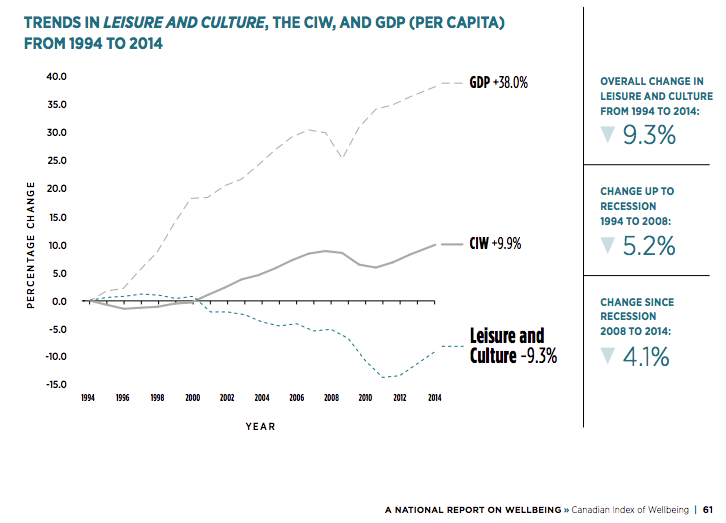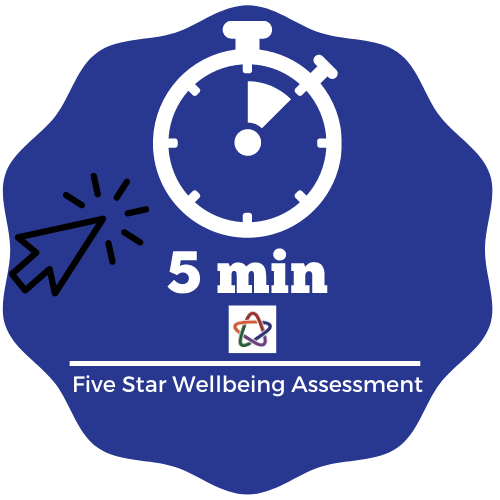
What Is Wellbeing?
Many people use the terms wellness and wellbeing interchangeably.
While wellness is most often associated with physical and emotional health, wellbeing considers the quality-of-life of individuals across five essential of life and includes factors such as career satisfaction, social relationships, financial security and community participation.
Wellbeing can be understood as one’s psychological, social or physical ability to meet and manage challenges. It can be defined as “
You can assess your own personal wellbeing, or the wellbeing of a population can be measured, such as your workforce. When the economy is strong, we notice a bump in the overall wellbeing of a population. However, as the following graphic shows there has been only a weak relationship between GDP (Gross Domestic Product) and the wellbeing of Canadians over many decades.

Source: How are Canadians Really Doing, CIW, 2016 National Report
Throughout the COVID-19 pandemic, every area of human wellbeing was impacted.
Today, Canadians are experiencing greater job insecurity, spending less time with friends and family, are participating in leisure and cultural activities less than ever. High inflation also means that people are also experiencing greater financial insecurity.
Five Areas of Wellbeing
Gallup’s research across 150 countries has shown that understanding and attending to these five areas of wellbeing can help you feel happier, be more resilient, and protect against mental health problems. Their research also shows that those who report high levels of wellbeing in each of the five areas, report that they are thriving. (Gallup).
Purpose Wellbeing
Do you like what you do each day? Are you motivated by the work you do or the contributions you make? People who have a sense of purpose and meaning in their lives are happier, more productive, more focused and suffer far fewer mental health problems. Learn More!
Social Wellbeing
Do you have positive, supportive relationships and loving relationships in your life? Social relationships act as a buffer against stress, and improve immunity and cardiovascular function. They also protect against depression, anxiety and substance misuse. Learn More!
Physical Wellbeing

Do you have good physical health? Do you get sufficient nutrition, rest, and exercise allowing you to feel good on a day-to-day basis? Seventy-five percent of medical expenses come from mostly preventable illnesses. People who attend to their physical health experience less stress, take fewer sick days, and are happier and more productive. Learn More!
Financial Wellbeing

Do you feel financially stable and secure and optimistic about your financial future? People with mental health problems are 3.5 times more likely to be in problem debt, and half of those in debt have mental health problems. Financial wellbeing plays an important role in your mental health. Learn More!
Community Wellbeing
Do you feel safe, have, have a sense of belonging, and feel you are contributing to the communities where you live or work? Community Wellbeing prevents loneliness, increases immunity and promotes positive mental health. Learn More!




